Montage - BOOKS
CORNER
Book launch
Ran Nelum Pokuna with English and Tamil translations
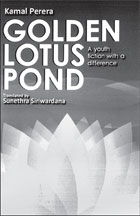
 |
|
Kamal Perera |
Kamal Perera will launch Ran Nelum Pokuna and its Tamil version
titled Ponthamarai Kulam at the National Library and Documentation
Services Board Auditorium on April 8. The Tamil version Ran Nelum Pokuna
has been translated by Madulugiriye Wijeratne while the English version
Golden Lotus Pond has been translated by Sunethra Siriwardena.
In addition, Viyatha Vath Asuraka, a collection of newspaper articles
and an approach to literary criticism of short story and a guide to
exercises will be launched on the same occasion.
A talk on the art of translation will be delivered by Prof. V.
Maheswaran of the University of Peradeniya.
Upul Ranjith Hewavithanagamage of the University of Kelaniya will
comment on the Tamil and Sinhala books.
Chinthaka Ranasinghe will evaluate the literary works of Kamal
Perera.
Minister of National Languages and Social Integration Vasudeva
Nanayakkara will preside over the meeting.
New arrivals
Prabhakarange Eelam Sihinaya Sunu Visunu Kala Rana Viruvo
Author: J.F Ranjith
Perera
A Sarasavi publication
J.F. Ranjith Perera's latest book Prabhakarange Eelam Sihinaya Sunu
Visunu Kala Rana Viruvo evaluates the contributions made by the heroic
security forces to eradicate LTTE terrorism from the country.
His first book entitled Winning an unwinnable war, A tribute to the
war heroes was written to evaluate the contributions made by the
political leaders and the commanders of the Security Forces and their
officers in the suppression of terrorism.
The second book written in Sinhala is to appreciate the selfless
sacrifices made by the heroic soldiers of the Security Forces who were
described as Ranaviruvo. They were the brave young men who carried the
gun to the battlefield against a band of ruthless terrorists amidst
natural and other artificial obstacles placed by the terrorists to
prevent the movement of the advancing security forces.
About 28,000 young men of the heroic security forces sacrificed their
lives and 10,000 of them became permanently disabled. Had it not been
for the selfless sacrifices made by them, the country would not have
continued to be a sovereign state with its territorial integrity intact.
In addition they sacrificed their lives to make us live safely.
We are not alone
The Caretakers
Author: Sunanda Mahendra
Reviewed by Daya Dissanayake
The journey begun by Prof. Sunanda Mahendra in 1963, with the
publishing of his first novel, Hevaneli Eda Minissu continues, leaving
regular landmarks on the way. Each landmark, be it in the form of a
Sinhala novel or poem or an English novel, reflects the maturity and
wisdom he had gathered over the years.
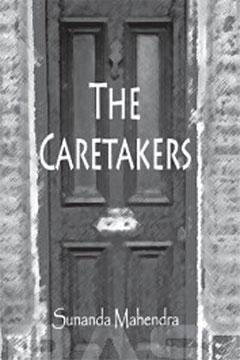 The Caretakers is the most recent landmark we find left by him in his
path as he continues his journey as a writer. It is a simple story,
short and sweet, where the poet in him comes out in the brief, but very
forceful novel, leaving us with much to think about. The novel tells us
how misguided traditions cause unnecessary tragedies in our society. The
story focuses on the utter confusion among the traditional hill-country
families who have tried to live within a prison of their own making. The
barbs on the wire running around the fence of the prison are the ancient
Sinhala, Hindu, South Indian and Victorian mores. The Caretakers is the most recent landmark we find left by him in his
path as he continues his journey as a writer. It is a simple story,
short and sweet, where the poet in him comes out in the brief, but very
forceful novel, leaving us with much to think about. The novel tells us
how misguided traditions cause unnecessary tragedies in our society. The
story focuses on the utter confusion among the traditional hill-country
families who have tried to live within a prison of their own making. The
barbs on the wire running around the fence of the prison are the ancient
Sinhala, Hindu, South Indian and Victorian mores.
Servile nature
Sunanda Mahendra has drawn a complete picture with three short
sentences. “Her real name was not Diana. She was known as Dayani Kumari
Abeysinghe. Her relatives shortened it to Diana”. After finding a
typical traditional Sinhala name for the girl, probably according to her
horoscope, they reject it for a very common English name, because their
servile nature overcomes their common sense.
Diana was brought up in this prison, and when she entered the
Agriculture school, the intelligent, ambitious, hard working girl, could
not face the reality of the life outside her prison. When the crude
practical joke on her by her friends backfired, she tried to flee, but
the barbed wire restrained her, pricking deep into her mind, injuring it
permanently.
The parents were in their own prisons, and within its restricted
world, they were obsessed with arranging a marriage for the daughter,
not because the girl wanted it, but to avoid the social stigma of having
a daughter in the family who would end up a spinster. The arranged
marriage was to a young man, who had escaped from the traditional
prison, but was caught up in the prison of business, the barbs on his
perimeter wires were the obsession to improve his business.
Tragedy
After the tragedy at the school, Diana had not got back to her normal
self, her father said, “If not for that, the best thing would be to
marry her off.” The same father says again, when the marriage failed,
“She is not going to be a burden to us. She is our only child. Let her
stay here with her child Dinithi”. This is the cultural trap that many
parents find themselves caught in, and Sunanda Mahendra describes the
trap without taking refuge in a one thousand page tome of a novel.
The book also brings out the contradictions in our society making
life a tangled web from which it is almost impossible to extricate
ourselves. One such situation is created by Diana's aunt Shanthi.
The story begins with her death, and in introducing Shanthi to us we
come across the sentence on page 8, “Let me live in peace” Shanthi says,
and again, “I have to struggle hard to keep myself occupied in some
fruitful mission, instead of entering this stupid marriage market
bringing child after child and paying homage to a husband come down from
the blues.”
Socrates
This same Shanthi offers advice to Diana to go back to her husband
and to ‘settle down with him”. At the beginning of Chapter 8, the author
quotes Socrates, “I know that I don't know”. Yet the characters who live
in this story, and most of us alive on earth today, have to admit, “We
do not know that we do not know”. Shanthi, who thought she knew what she
wanted in her life, in the end perhaps shows a tinge of regret about
what she may have missed in life.
In a way, The Caretakers is not the story of Diana alone, but is the
story of Shanthi, and Anula and Thamara and all womankind.
This is where the author's thorough knowledge of the Tripitaka,
Jataka stories, Eastern and Western Classics and the modern novel, plays
its role to bring Diana to accept life as it is.
In the end Diana has stepped outside her prison, or the prison walls
had slowly dissolved away, and she is free. At the beginning of the
narrative, Mahim finds Diana, a very talkative girl, looking after her
baby and also concerned enough to make her scholar uncle comfortable at
the funeral home.
Diana tells us, “I am not alone! Here I am! A woman! No woman is
alone.” We, none of us, are ever alone.
Aquinas’ profound philosophical ideas on friendship
by Charith Perera
It is very rare that a book on philosophy is published in this part
of the world which is preoccupied with a rat race aimed at acquiring
material prosperity. But, it is still worthwhile pondering on to deviate
one from the worldly thoughts and to think about the meaning of life and
about rare attributes of humanity as friendship.
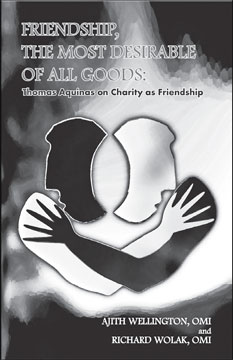 A book authored by Fr. Ajith Wellington, OMI, and Fr. Richard Wolak,
OMI , is such a rare book which deals with the subject of friendship
from a philosophical perspective. The book entitled “FRIENDSHIP, THE
MOST DESIRABLE OF ALL GOODS: Thomas Aquinas on Charity as Friendship”
will be launched at 4 p. m. on April 6 at the Bonjean Hall, St. Joseph’s
College, Colombo-10. A book authored by Fr. Ajith Wellington, OMI, and Fr. Richard Wolak,
OMI , is such a rare book which deals with the subject of friendship
from a philosophical perspective. The book entitled “FRIENDSHIP, THE
MOST DESIRABLE OF ALL GOODS: Thomas Aquinas on Charity as Friendship”
will be launched at 4 p. m. on April 6 at the Bonjean Hall, St. Joseph’s
College, Colombo-10.
The concept of friendship has an important place in the history of
philosophy. This aspect is prominent in the golden era of ancient
philosophy (Greek Humanism-Socrates, Plato, and Aristotle) with the
shift of philosophical focus from a reflection on the natural world to a
reflection on man. This shift of focus enabled man to see and appreciate
his connectedness to the other and the important role others play in his
life.
Medieval philosophers because of their Christian faith added a
vertical dimension (God-man friendship) to the already established
horizontal understanding of friendship between man and man. The new
dimension is linked to man’s search for his place in the world and his
search for meaning of life. The Christian faith which advocates man’s
union with God as the ultimate fulfillment of life was able to answer
man’s quest in search of meanings of life.
Golden era
Having dealt with the philosophical evolution of the notion of
friendship from the medieval period which is considered the golden era
of Christian philosophy and the profound ideas expounded by St. Thomas,
the authors observe the decline of the importance of friendship in the
light of modern advancement of science and scientific discoveries which
were more attractive to the man.
The authors observe, “This development coincided with the devaluation
of many things: respect for man, respect for God and respect for nature.
In the medieval period, man was seen as a creature, unlike all other
creatures, created in the God’s image and likeness. Nature was seen as
God’s creation, given to man as a gift. With the dawn of the modern era
man became busy trying to domesticate nature, trying to unravel the
secrets of both nature and the human.
He was obsessed with success and discoveries. In such as world, the
concept of friendship appears to be in a state of disarray. Contemporary
cultures do not give prominent place to friendship, and contemporary
mores indicate to us ‘friends’ can have numerous relationships with us:
as lovers, lunch companions, colleagues, acquaintances and political
allies. Unfortunately, the concept of man loving another man in God has
today become quite alien to the human mind. Loving someone for his own
sake is also not really a quality that characterizes our relationship
today.”
According to the authors, the objective of the book is to study and
evaluate the Thomistic idea of caritas as amicitia (charity as
friendship) in view of discovering why and how friendship is the most
desirable of all goods. The book expounds the profound philosophical
insights of St. Thomas, philosopher-theologian, on the subject of
friendship. The book is an attempt at understanding St. Thomas’s theory
of friendship and its myriad applications.
Fr. Ajith Wellington is a member of the Congregation of the
Missionary Oblates of Mary Immaculate (OMI), is an alumnus of the
National Seminary of Our Lady of Lanka, Kandy, Sri Lanka. He holds a
B.Ph. (Bachelor of Philosophy) and a B.Th. (Bachelor of Theology) from
the Urbaniana University, Rome, a L.Ph. (Licentiate in Philosophy) and a
Ph.D. (Doctorate in Philosophy) from the Gregorian University, Rome as
well as a Postgraduate Diploma in Buddhist Studies from the University
of Peradeniya, Sri Lanka.
He has been a lecturer (2001-2003) in Philosophy at the Charles
Lwanga Major Seminary, Windhoek, Namibia and since 2004 he has been
teaching Philosophy at his alma mater, the National Seminary of Our Lady
of Lanka. At present he is also a visiting lecturer at the Department of
Western Classical culture and Christian culture of the University of
Kelaniya, Sri Lanka.
Fr. Richard Wolak is a member of the Congregation of the Missionary
Oblates of Mary Immaculate (OMI), is an alumnus of the Angelicum
University, Rome. He holds a L.Th. (Licentiate in Theology) and a Ph.D.
(Doctorate in Philosophy) from the Gregorian University, Rome.
He has been a teacher at Michael Power H.S. in Toronto (1962-1967), a
lecturer in Moral Theology at St. Charles Scholasticate, Battleford
(1967-1972), at Newman College, Edmonton (1975–1994), at St. Dominic’s,
Lusaka, Zambia (1995-1997), at OMI Scholasticate in Cedara, South Africa
(2006–2007).
Apart from his teaching career, he has also been involved in
administrative work. He served as the Editor of the Magazine, “Missions
Today” (1997-1999), and the Provincial Treasurer, Director, Saskatoon,
SK (1999 – 2005). At present he lives in Rome working as a translator
and librarian at the OMI General House.
Two books on Chekhov and Gunadasa Amarasekera
Dr. Palitha Ganewatta, the Executive Producer of Special Broadcasting
Service (SBC) in Sydney, Australia, launched two books at the Russian
Cultural Centre, Colombo recently.
The two books are Doctor Chekhov and Discussions with Dr. Gunadasa
Amarasekera.
The great Russian writer Anton Pavlovich Chekov (1860-1904) was
widely known as a dramatist and a short story writer. He remains a 19th
century Russian literary giant, whose prose continues to offer moral
insight to readers across the world. The little known fact is that
Chekov was a doctor who obtained his medical degree from the Moscow
Medical School in 1884.
 |
|
Anton Chekhov |
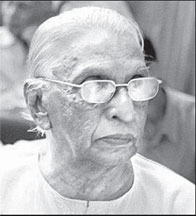 |
|
Dr. Gunadasa
Amarasekera |
Chekov experienced no conflict between literature and medicine. He
believed that the knowledge of one field complemented the other. He
brought his intuitive knowledge and sensitivity of medical science to
his creative writings. His sensibility as a medical practitioner gave
special poignancy to his physician characters in his short stories.
Medical practitioners were among the main characters of Chekov's best
short stories produced during the later years of his life. Chekov's
famous short stories such as ‘Ward No.6’, Doctor's visit’, ‘The
‘Grasshopper’ and ‘Doctor lonich’, describe the legacy of the 19th
Century Russian doctors. The translations of three of thee stories are
included in the collection. The author draws from original Russian
sources, which have never before been translated into English.
Palitha's book studies Chekov's medical career and the impact it had
on his creative writings. The author draws on the recollections of
Chekov's family, contemporaries, professional colleagues and friends.
Chekov's letters have been widely used in the collection, as the author
believes that his best biography was written by Chekov himself as
letters, which he wrote every day to his friends and literary
colleagues.
It is the second book published by Palitha on Anton Chekov. The first
book, a collection of 18 short stories of Chekov, translated from
original Russian to Sinhala, was published in 2004 to coincide with the
great Russian writer's centenary death anniversary.
The second book is titled Discussions with Dr. Gunadasa Amarasekera
Dr. Gunadasa Amarasekera is a foremost creative writer of Sri Lanka
today. He is a poet, a short story writer, a novelist, a literary critic
and a committed intellectual.
The booklet contains a collection of interviews broadcast by the
Sinhalese Radio Program of Special Broadcasting Service (SBS) in
Australia.
Book launch
Sajeevi Lokaya
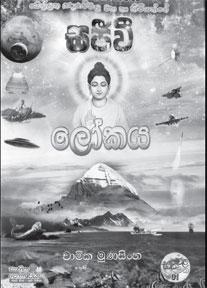
Agga Maha Panditha Ven. Dr. Bellana Gnanawimala Thera's Sajeevi
Lokaya will be launched at the National Library Services and
Documentation Centre auditorium, Colombo 7 on March 28 at 3 p.m. Ven.
Dr. Medagoda Abhayatissa Thera, Ven. Maduluwawe Sobhitha Thera, Ven.
Agalakada Sirisumana Thera, Ven. Prof. Pathegama Gnanissara Thera and
Ven. Dr. Ittapane Dhammalankara Anunayake Thera will address the
launching ceremony. Sajeevi Lokaya is a Sahitha publication.
*********************
Athipujya Bellana Gnanawimala Maha Nahimi Desu Ha Liyu Bana
Ven. Pandith Lathpandure Rahula Thera's latest book titled Athipujya
Bellana Gnanawimala Maha Nahimi Desu Ha Liyu Bana will be launched at
the Valukarama Temple, Colombo 3 on March 26 at 1.30 p.m. It is a
Dayawansa Jayakody Publication. |



